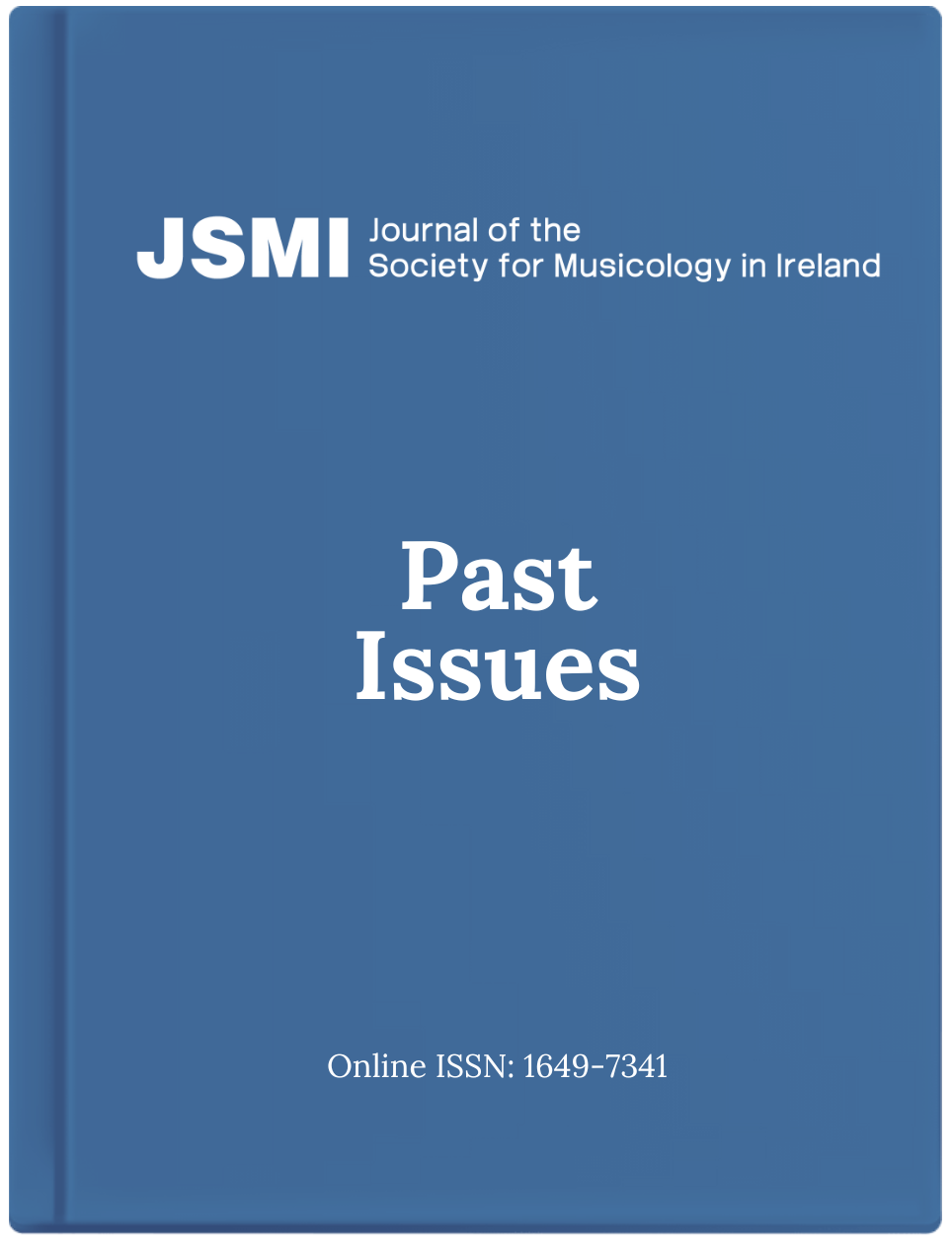Musical Legacies: The Contribution of the Music Association of Ireland to an Irish Musical Infrastructure
DOI:
https://doi.org/10.35561/JSMI10141Keywords:
Culture, classical music, post-nationalism, identity, music education, volunteerismAbstract
Drawing on archives preserved in the National Library of Ireland, Dublin, this article examines the history and significance of the Music Association of Ireland (MAI). During its sixty-year lifespan, from 1948 to 2007, the association contributed considerably to the musical life of Ireland, particularly in its educational initiatives and its efforts to influence national music policy and create an infrastructure for composers. Its voluntary efforts, especially its initiatives such as the Composers’ Group, Country Tours, Coming Out recitals, the Schools’ Recitals Scheme, the Irish Youth Orchestra and the Dublin Twentieth-Century Music Festival, grew into or influenced many of the independent, professional organizations prominent in Irish musical infrastructure today. At a time when government funding of the arts was limited, the MAI filled an important niche and acted as a voice for classical music, particularly in Dublin. The association’s initiatives, particularly the Schools’ Recitals Scheme (1967) and the Irish Youth Orchestra (1970), thrived in a climate which experienced pioneering developments in the arts and increased educational opportunities and leisure time. The times were marked by remarkable transformations in cultural, social and pedagogical practices which resulted in the opening up of access to the arts from the 1970s. The MAI benefitted greatly from this surge in cultural activity and the association became the Arts Council’s model in its pursuit of professionalizing the arts in Ireland. However, the MAI was unable, or unwilling, to make the transition from a voluntary organization to a professional one, and gradually went into decline. The long-term nature of a number of its projects meant that the MAI’s six objectives could not be achieved by one voluntary organization. Some sixty years later, many of these objectives are only now being realized through professional, government-funded agencies. The evidence of the MAI archive shows that the association played a valuable role in developing music and music education in Ireland—a notable achievement that deserves to be remembered.
Downloads
Published
Issue
Section
License
Copyright for articles and reviews published in this journal is retained by the authors, with first publication rights granted to the journal. By virtue of their appearance in this open access journal, articles are free to be used, with proper attribution, in educational and other non-commercial settings.
It is the responsibility of the author to secure (and, if necessary, pay for) written copyright permissions for the reproduction, in this online journal, of any illustrations, images, music notation, audio and video files, or any other copyright materials, that are included in the author's article.



